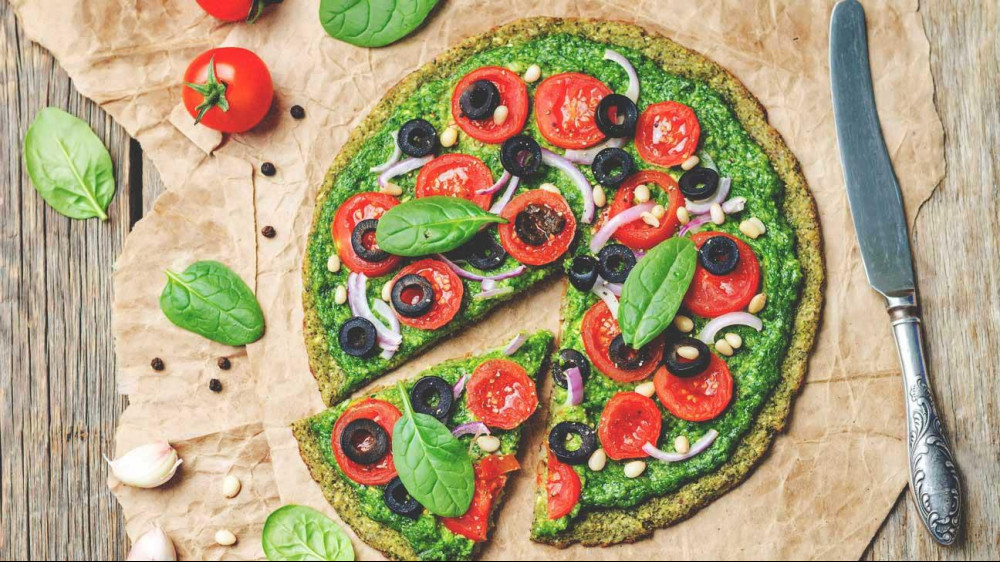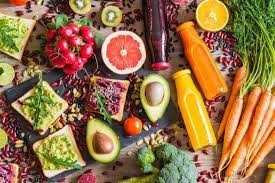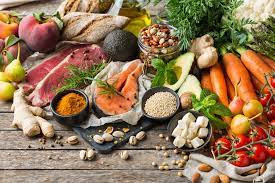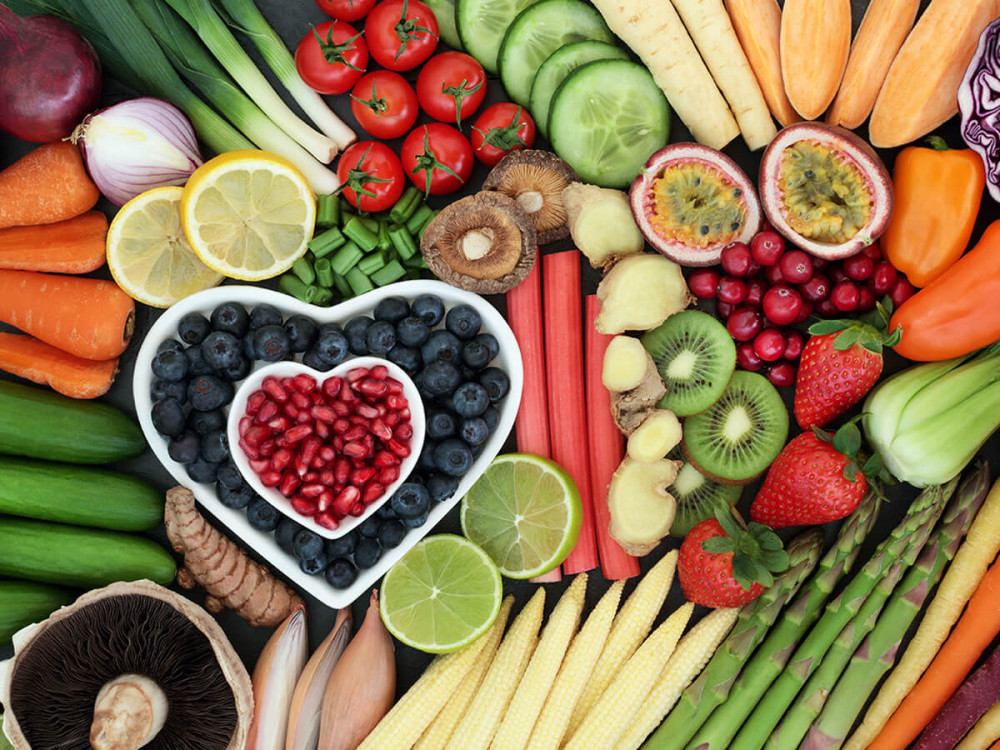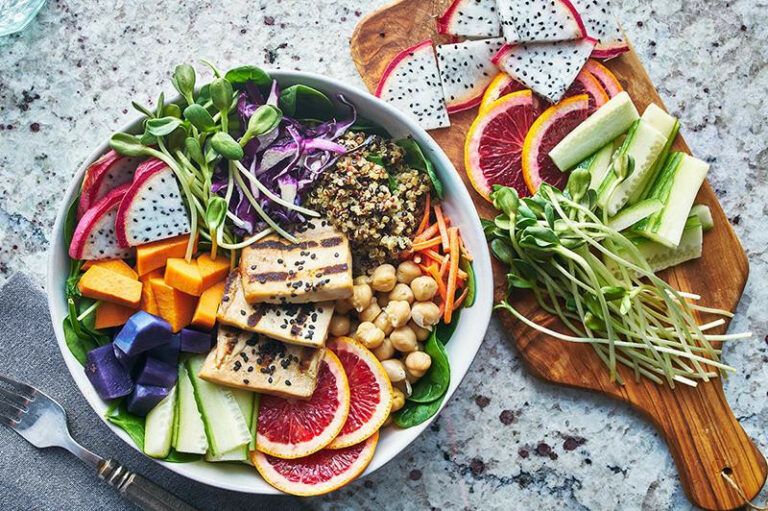Veganism And When It Started
Veganism And When It Started
‘Veganism' has become a buzzword of late. A growing number of people are aware of veganism's potential nutritional and environmental benefits thanks to the fact that vegan foods and products are cropping up everywhere from food trucks to supermarkets to Michelin-star restaurants. It's even been the topic of numerous documentary films and star-studded endorsements from the likes of Bill Clinton and Ariana Grande. And with social media making it easier to share, like, buy, or try, veganism is experiencing a surge in popularity.
If all the publicity has made you stop to consider if you want to go vegan, but you're not sure exactly what it means (or where to start), you've come to the right place. Read on for an in-depth guide on what being a vegan entails the benefits it can offer, and some helpful resources to help you get started. The Vegan Society defines veganism as a way of living that avoids all forms of exploitation or cruelty toward animals, as much as is practically possible.
Hence, the term vegan refers to anything that's free of animal products or made using animals. That means more obvious things like meat, fish, milk, cheese, and eggs, but it also includes products even partially derived from animals — including a few surprise ingredients you may not expect (spoiler alert: wine). We'll get into those more a little later.
Veganism is more than just a diet — for many, it's a philosophy to consume compassionately in all areas of life. So whether that means saying no to animal-derived furniture or clothing that's made of fur or leather, vegans will also avoid personal or household products tested on animals or that contain animal products in them. You'll start to find different camps of thought when it comes to certain foods and products, though.
For instance, some consider honey to be non-vegan since it's made by a living creature, while others feel okay to consume it if it's ethically raised. There's also debate around whether second-hand animal products, like a leather jacket from a thrift store, can be included in a cruelty-free vegan lifestyle.
But regardless of where others stand on the more nuanced aspects of veganism, the important thing is that you take the time to decide for yourself why you're interested in becoming a vegan — and decide what rules feel right for you and your personal goals.
A vegetarian diet is one that does not include any meat or seafood. However, there are many variations to this – some people following a vegetarian diet may eat eggs and dairy foods, while others may avoid one or both. A vegan diet is another form of vegetarianism where only plant foods are eaten and all foods from animal sources are avoided (meat, seafood, dairy, eggs and sometimes honey and gelatine).
Vegetarian diets can have many health benefits. They can offer all the essential vitamins and minerals necessary for a long and healthy life provided they are well-planned. Breastfeeding mothers and children who have a vegetarian diet need to take particular care to make sure they get all the essential nutrients they need for healthy growth and development.
Vegan and vegetarian diets both exclude meat and seafood. Vegan diets go a step further, though, by also nixing every other food of animal origin. So, in addition to avoiding meat, vegans steer clear of dairy products, eggs, and honey. Additionally, vegan foods never contain any byproducts of animal agriculture, such as lard, whey, or gelatin.
A vegan diet delivers powerful advantages over a vegetarian diet. Vegetarianism merely reduces farm animal exploitation, whereas a vegan diet eliminates every last bit of it. A vegan diet may also offer health and environmental advantages over diets that include dairy products and eggs. For these reasons, many vegetarians ultimately decide to go vegan.
What Is Veganism?
You may have noticed that the word ‘vegan' can mean something different to every person who speaks it. The simplest definition of veganism is to reduce your consumption of animal products, but since ‘vegan' doesn't translate well to text, here's an actual breakdown of veganism.
There's no question that going vegan will not be the healthiest choice for you, but so what? ‘Veganism' does not in any way guarantee health. Research has shown that following a plant-based diet is more protective against cardiovascular disease, cancer, and diabetes than having an omnivorous diet, but the reverse is true as well.
Veganism, a diet based on the non-consumption of all animal products, is one form of ‘veganism'. While veganism is often presented as an extreme form of eating, it's actually less extreme than many think. And though there are various strands of veganism (such as the moral approach, ethical veganism, and the view that vegetarianism is no longer a healthy option), they all share one defining characteristic: the avoidance of all animal products. This means no meat, dairy, or eggs. Of course, not all foods are vegan, and even if they are, it's possible to eat a little meat. Many condiments such as ketchup and Heinz – made famous by the name ‘chicken of God' – are vegan.
Why Do People Choose To Be Vegan?
Most people who follow a vegan lifestyle eat only plant-based foods. Plant-based foods are foods that have either been fortified with essential vitamins and minerals, or which have been naturally processed without the use of animal products. They include milk, cheese, eggs, chicken, salmon, and even honey. But while veganism is a polarizing term, the benefits are clear.
Vegans avoid animal products so that they don't contribute to the suffering of animals. That's because animals raised for food, including farm animals, are often crammed together in pens and confined in cruel ways. Factory farming contributes to greenhouse gas emissions, deforestation, and water pollution.
Many people choose to become vegan for moral reasons. But there's an element of choice in this as well: vegans eschew any kind of animal products. That means no meat, dairy, honey, eggs, leather, wool, silk, or fur. “Veganism isn't just for those who want to live a healthy life and eat a vegan diet,” says Dr. Agnes Geel, a specialist in nutritional medicine at Surrey & Sussex Partnership NHS Foundation Trust, UK. “You can live a vegan lifestyle to suit you.”
The vast majority of those who are considering a vegan lifestyle have one reason in mind: animal rights. Advocates of veganism want to live free of the abuse and suffering they believe is inherent in the consumption of animal products. Veganism is a highly informed choice that involves a great deal of research and dedication, and unlike many health fads, veganism is not something that you can jump into it cold-turkey.
Other motivations include animal rights (vegans want to be part of the movement to end animal exploitation and cruelty), concerns about health (many vegans follow a plant-based diet to help minimize the harmful effects of animal products), and environmental impact (to name a few). Veganism can also be viewed as a reaction to cultural trends and a sort of social pressure.
Why Are So Many People Turning Vegan?
While the motivations behind these movements are typically varied, it's generally the desire to avoid eating and purchasing animal products that motivate the decision to become a vegan. With thousands of alternatives to animal products available, there's never been a better time to be a vegan. Veganism is not a new concept, but it's one that's increasing in popularity.
While the word was first coined by author and vegetarian Thomas Paine (he's not vegan, although he did advocate for it), it didn't become a household word until much later. In fact, even vegetarians had a hard time keeping up with the ever-changing rules and regulations of vegetarianism. In the 1900s, people turned to vegetarianism because vegetarianism was “backwards,” as one vegetarian put it.
A notable reason that people are willing to make the transition to a vegan diet is its health benefits. Studies show that veganism can help reduce your risk for heart disease, cancer, and diabetes as well as weight gain and other chronic illnesses.
The American Journal of Clinical Nutrition found that a vegan diet may help you feel less hungry and have lower cholesterol levels. Not convinced? If that wasn't enough, there's even evidence that veganism may contribute to lowering your risk of mental health issues such as depression and anxiety. Studies show that many low-income individuals choose plant-based diets because of increased cost, not because of health concerns.
How To Start A Vegan Lifestyle
Starting a vegan lifestyle isn't always as easy as simply making the switch to plant-based foods and consuming no animal-derived products whatsoever. Once you've resolved to no longer consume animal-derived products – whether in your diet or in your home – it's crucial that you commit to creating a diverse, well-balanced vegan diet that's as healthy as it is vegan. Including leafy greens such as spinach, rocket, and broccoli in your weekly dinner salad is a great way to get plenty of calcium from plant-based food, as well as vitamins, minerals, and healthy fats.
Getting started with a vegan lifestyle doesn't have to be intimidating. You don't have to give up eating meat and dairy entirely, or completely substitute plant-based foods with anything but soya, nuts, fruit, vegetables and grains. Even those who follow a ‘traditional' vegan diet that allows eggs and dairy products can still consider adopting a vegan lifestyle if they enjoy foods like cheese, yogurt, meat substitutes and processed foods.
Veganism is about eating whole, plant-based foods, meaning the majority of your diet should consist of foods that have not been cooked. You can try a vegan breakfast such as a banana, granola and coffee, or a full plant-based lunch with hummus and some leafy vegetables such as spinach or cabbage.
While there are many vegan choices out there, veganism doesn't necessarily have to be viewed as a lifestyle that encompasses all or even any foods. At the most basic level, a vegan diet is just one that does not include any animal-derived foods. Some people choose to go even further, to avoid all animal-derived products. And it's a lifestyle that is most easily established when you're young. The development of your taste buds, metabolism, and understanding of nutrition change in tandem with your age, which makes it easier to go vegan as you get older.
Veganism, The Long-Term Benefits
The good news is that many people do not feel the need to fully convert to veganism – or become a vegan – for the sake of their health or the planet. Many, including prominent celebrities, are fully committed to going vegan but are still happy to eat meat in moderation.
Celebrities such as Leonardo DiCaprio and Pamela Anderson have praised the vegan lifestyle for its environmental and health benefits. DiCaprio, for instance, co-founded the newly founded animal-product-free (APF) Foundation. He says that through his work with the Foundation he hopes to lead the environmental and health revolution that will “get rid of the exploitation and cruelty to animals.”
Fasting from animal products, particularly meat, has been a popular way to cut out or limit animal products in the past. But veganism is becoming a much more widespread form of abstaining from animal products altogether, in part thanks to benefits such as lower levels of cholesterol and blood pressure.
But what does veganism mean? Of course, veganism is about food – it means no animal products whatsoever. The name “vegan” comes from the Greek ‘veganos', meaning “a life without foods”, or, as a verb, “to choose a life without foods”. Since the dawn of humanity, humans have been animal eaters, and the diet associated with veganism was and continues to be, the diet of any hunter-gatherer tribe that can't afford the resources to eat meat.
According to the Vegan Society, veganism is “the philosophy and way of life which seeks to exclude, as far as is possible and practicable, all forms of exploitation of, and cruelty to, animals for food, clothing or any other purpose.” Veganism doesn't exclude any aspect of animal rights or ecological ethics but tends to centre around food and clothing since these things are easily substituted for non-vegan substitutes.
Veganism can be a tough transition for people who have, until now, been eating meat and dairy for a major part of their diet. Firstly, one of the hardest things to adjust to is the impact it has on the people involved in making vegan options.
The Environment, The Animals, And The Planet
Of course, there are many people who are vegan for ethical reasons. The Good Food Institute estimates that over two million animals are killed for food each day in America. Veganism has become a growing target of criticism from animal rights groups, who accuse vegans of “denying” (or not “fully” acknowledging) the suffering and pain that all animals experience when they are killed for food.
An animal advocacy group published a press release condemning the use of the word “vegan” to refer to people who eat seafood and shellfish. For vegans, veganism is a more ethical approach to eating animal products. To eat animal products, even if they are dead animals, is unethical. To call oneself a vegan is ethical.
This phenomenon is partly fuelled by the fact that there are quite a few benefits to going vegan that outweigh the negative impacts of going meat-free. For starters, producing meat takes up a significant amount of water and land resources and can harm the environment due to the large amounts of energy, feed, and other resources that are needed to produce meat.
However, if you consider the way animal products can harm your body and the planet, veganism might be a better way to go. A meat-free diet can help to reduce your risk of heart disease, diabetes, and cancer and improve your brain health, as well as save you money. For example, a vegan diet can save you money by ensuring you stick to your vegetable intake and avoid eating foods that are often higher in calories.
The vegetarian and vegan movements have a lot in common. Both promote the removal of cruelty to animals as well as the protection of the environment. The similarities don't end there though. Both movements have an interest in preventing food waste and improving the plight of the world's poor farmers.
Food waste, especially in the United States, is one of the greatest problems that most cities and states have to deal with. According to the U.S. Environmental Protection Agency (EPA), 30% to 40% of the food produced in the U.S. is wasted. As much as a third of that is all food grown at home. Studies have also shown that organic produce often costs more to produce because farmers have to use more expensive organic fertilizers and pesticides to protect themselves from disease and pests.
Going Vegan At Home
Whether you're sticking to a purely plant-based diet or deciding to get started on a more flexible, occasionally vegan lifestyle, the first step in taking on this lifestyle change is buying yourself some of your own vegan products. Of course, it's easy enough to find and stock up on foods that have been made vegan for you, and with some savvy browsing in the supermarket, you're almost guaranteed to find some vegan brands.
But not all vegan food is created equal and there are a lot of brands you'll need to know about if you want to avoid a bad vegan experience when starting out. For starters, you'll need to know which types of products are truly vegan. For example, some canned foods, juices, and salad dressings are vegan but others are not.
After a lot of hard work by the animal rights community, veganism is slowly becoming an aspirational lifestyle for people in the Western world. You can't beat the health benefits, the eco-friendly benefits, or the convenient benefits of saving a lot of money.
The food industry has also developed vegan products to satisfy those people who want to switch, but need help making the lifestyle change. If you don't have a lot of food storage space and you don't fancy living in a cave to stay vegan, a simple approach to switching to a vegan lifestyle is to start buying vegan foods like fresh fruit, nuts, and grains (at the supermarket or health food store, not a farm!).
Fast Food Restaurants
I'm aware that some vegans are resistant to the term ‘vegan,' no matter how vegan they are, and I'm not just referring to the word itself. But until someone adopts a healthy diet full of fruits, vegetables, legumes, nuts, seeds, whole grains, and beans, complete with supplements to support the body's inherent self-preservation mechanisms, they are likely to face some problems.
When we think about animal products that are a major part of a plant-based diet, we generally think of meat and dairy, although there are others, too. There are also questions about things like eggs, honey, butter, cream, and some types of seafood, though some vegans who do not strictly adhere to the ‘no animal products' eating plan often do consume these.
Social Media And Veganism
While on the surface, veganism may not appear to be an appealing topic for the vast majority of people. In reality, however, it's become a sort of cult-like movement thanks to how accessible it is. There's really no downside to switching to a plant-based diet and the good news is that it's accessible for everyone.
Whether you're a college student on a tight budget, a busy mom, a stay-at-home dad, or just someone who wants to eat healthier, vegan food is an extremely affordable, practical, and easy-to-make lifestyle. For example, substituting a delicious vegan “cheeseburger” sandwich for a bun-filled one only requires swapping one sandwich bun for half of one.
Social media has been instrumental in spreading awareness of the benefits of veganism. Going vegan has become a community-building exercise, and has helped to humanize the issue and dispel some of the previously-held myths about a vegan lifestyle.
For example, if you're on social media, it's not hard to come across a headline or meme advocating veganism (often accompanied by an image of bloody, non-vegan meat), all seemingly to paint the lifestyle as extreme and at odds with the “real” world. It does so, in part, to insinuate that if we love animals, and wish to do our utmost to protect them, then we must do so by going vegan.
Conclusion
While the benefits of a plant-based diet for long-term health are well documented, that said, let's not forget that veganism can have many physical and social benefits, too. The main point to take away is that a vegan diet is not anti-food and that any kind of restrictive diet is likely to be detrimental to your health.
Food is a universal language that we use to communicate with one another, and by setting limits on what we're eating, we're stopping our bodies from reaching their full potential. There is far too much information and misinformation on food out there, but we can all make more informed choices to ensure our diets are really healthy.
I trust you enjoyed reading the article about Veganism And When It Started. Please stay tuned. There are more blog posts to come very shortly.
JeannetteZ
Want To Learn How To Create Delicious, Cruelty-Free, Healthy AND 100% Vegan Meals? Try These Awesome Vegan Cooking Courses With A Free 7-DAY MEMBERSHIP
Your Opinion Is Important To Me
Ideas? Thoughts? Questions? I would love to hear from you. Would you please leave me your questions, experience, and remarks about this article on Veganism And When It Started in the comments section below? You can also reach me by email at Jeannette@LivingTheVeganLifestyle.org.
Here are thee links to some of my favourite articles:
How To Celebrate Your Veganniversary

